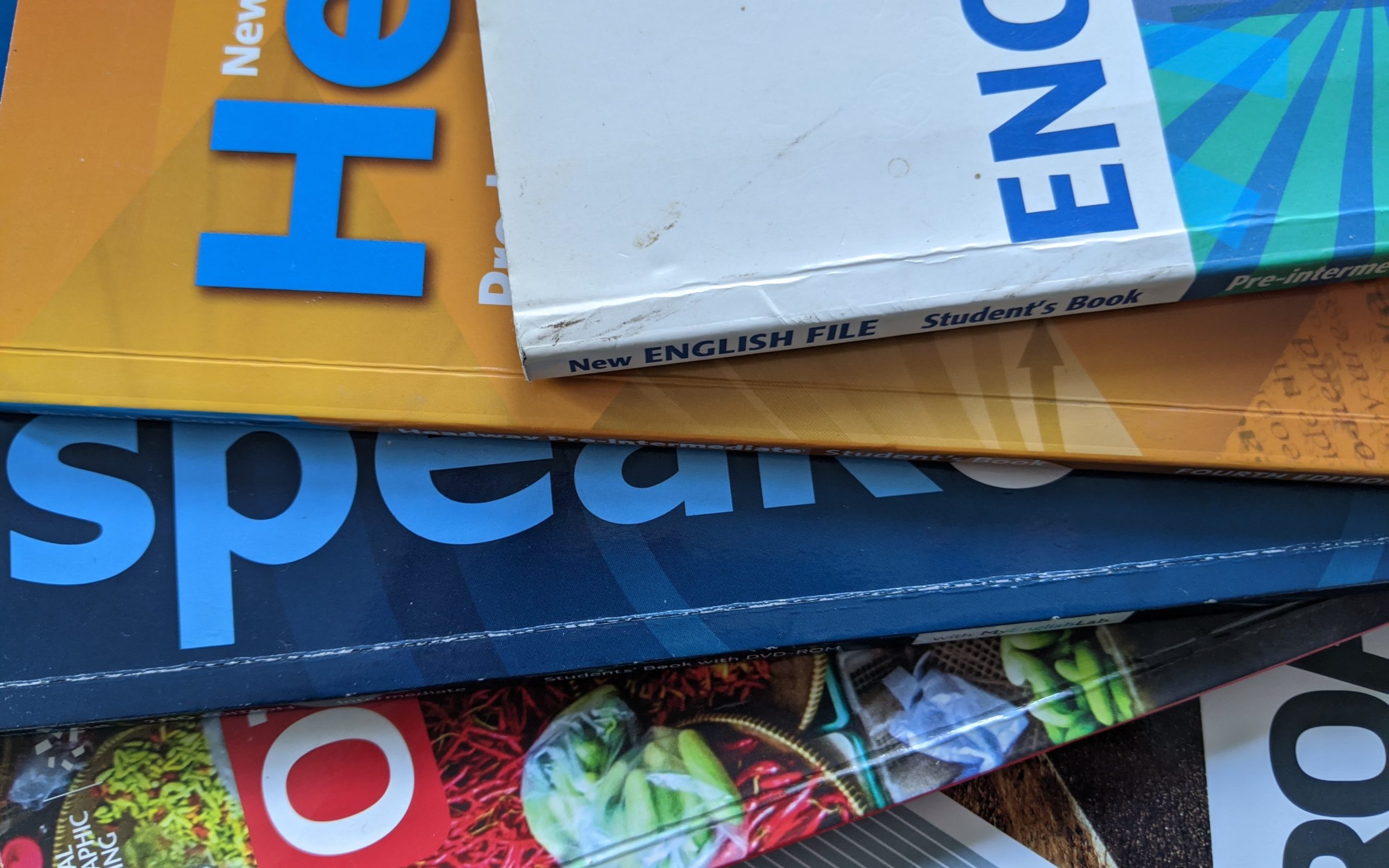
I was visiting a school recently for a mini-conference for the school’s teachers and during one of the discussions it was mentioned that teachers were encouraged to only use the coursebook ‘50% of the time’. The school is based in the UK so imagine this is partly driven by English UK/British Council inspections, which I know will typically question sticking to a coursebook too closely (though from my time as senior teacher of an EFL department, I don’t think they would be so prescriptive about the percentage). But of course, the school and teachers themselves will have their own reasons to adapt their coursebook too. No coursebook can be exactly appropriate for all students in all contexts. There may be assumptions about students knowledge of subjects outside of language (including celebrities, media and geography) as well as assumed life experiences such as work, travel, and family background. And from the English UK perspective, students have come from abroad to study in the UK, so from their point of view, students learning should reflect that context. Why would students pay extra to come to the UK, when in fact they get exactly the same experience in the classroom as they do at home?
On the basic idea of not being a slavish follower of the coursebook, I agree. However, what I am less sure about is whether teachers (or indeed managers or trainers) are clear enough about what needs to be changed, replaced, cut or supplemented and especially why, before teachers even choose how they will do it. I don’t know if the school I visited had a view on what the 50% non-coursebook use should be and what 50% of the book should be retained, but based on my own experience as a teacher, trainer and classroom observer, I do know that these reasons are not always interrogated very thoroughly and the resulting adaptations often fail to offer anything better. To be honest, even if there is a marginal benefit, we should still be asking if that benefit is sufficient if a teacher has to spend a long time in preparing their non-coursebook activities – especially if they are on low wages. Lexical Lab teacher development courses, whether online or face-to-face, address precisely this issue by helping teachers (and managers!) to be clearer about reasons for using and not using your coursebook and providing a clear framework for teachers.
For example, in Plan smarter and get the most of your coursebook we start by actually understanding that no, not all coursebooks are the same. Some are constructed more to present and practise grammar rules (albeit with speaking activities and other skills work), while others are driven more by enabling students to do certain tasks or conversations. We also discuss constraints that apply to all coursebooks and how all courses (whether with a coursebook or not) are constrained by time and the learning process. What this does is enable teachers to identify where they as teachers can add value to the coursebook and make better choices about ho to spend their time and energy in adapting material.
In Teaching languages at low levels, one area we look at is the way coursebooks – whatever their underlying principle – will tend to underplay the amount of repetition beginners need to get their tongues around the new language as well as the amount of revision and recycling students need to be able to have routine conversations. We look at how we can build in that repeptition in various ways alongside the coursebook.
In Teaching Listening Better we look at how listening lessons have developed in coursebooks and how certain procedures and comprehension tasks have become somewhat fixed. The issue here is that where teachers seek to replace listening material (e.g. with online videos or podcast extracts) they may well replicate the same procedures as a coursebook. Again, we look at how recent developments in understanding the listening process suggest a somewhat different approach, that you can bring to coursebook material OR your own material, to better help students hear and understand language.
What principles or framework do you have for adapting or rejecting coursebook material?
Plan smarter and get the most from your coursebook starts on Friday March 1st.


